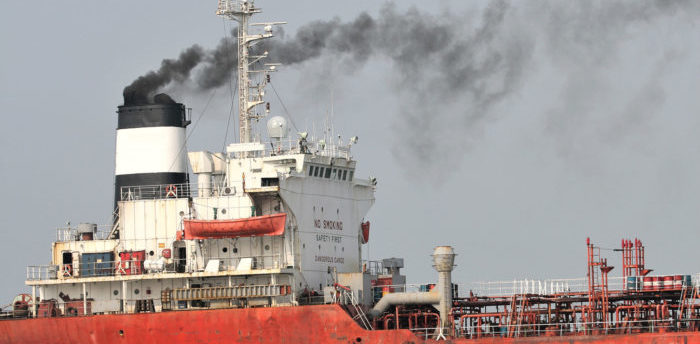The initial strategy on reduction of greenhouse gas (GHG) emissions from ships that was adopted at IMO MEPC 72 meeting in London last week has received a wide applaud by industry stakeholders across the maritime.
Shipping currently represents 2-3% of global CO2 emissions and could reach 10% by 2050 if no action is taken, so the strategy refers to the ambition to minimize GHG emissions from global shipping as soon as possible. This means to reduce the total annual GHG emissions by at least 50% by 2050 compared to 2008, whilst pursuing efforts phasing them out as a point on a pathway of CO2 emissions reduction consistent with the temperature goals aligned with the Paris Agreement 2015.
The initial strategy contains a list of candidate short, medium and long-term measures, needed to achieve the level of ambition that was agreed.
The European Commission hailed the agreement, noting that this is a good starting point that will allow for further review and improvements over time, although the EU had sought a higher level of ambition:
The agreement reached today at the IMO is a significant step forward in the global efforts to tackle climate change. The shipping sector must contribute its fair share to the goals of the Paris Agreement…For this initial strategy to succeed, it is now crucial that effective reduction measures are swiftly adopted and put in place before 2023. Preparations on longer term actions should also begin.
Lars Robert Pedersen, BIMCO Deputy Secretary General and delegate at the IMO meeting, stated:
The IMO has done something no one has done before: set an absolute target for emission reductions for an entire industry. It is a landmark achievement in the effort to reduce emissions, and something that every other industry should look to for inspiration.
[smlsubform prepend=”GET THE SAFETY4SEA IN YOUR INBOX!” showname=false emailtxt=”” emailholder=”Enter your email address” showsubmit=true submittxt=”Submit” jsthanks=false thankyou=”Thank you for subscribing to our mailing list”]
In addition, ports are mentioned among the stakeholders that can facilitate the industry in reducing GHG emissions, through onshore power supply from renewable sources, infrastructure to support supply of zero-carbon fuels and optimisation of logistics chain planning. The International Association of Ports and Harbors (IAPH) Managing Director Policy and Strategy, Patrick Verhoeven, who attended the IMO deliberations, commented:
Whilst thriving on shipping business, many ports are vulnerable to climate change and invest heavily in making their infrastructure resilient for the future. That is why IAPH initially supported the proposal of Marshall Islands, other Pacific island states and European countries to aim for a total reduction of 70 to 100% by 2050. The agreement that was reached today is however a compromise that we can support, as it sends out a powerful signal to the world that the shipping industry is fully on board in the fight against global warming.
While hailing this IMO progress, most parties expressed their concerns that the real action towards the ambitious goal hides challenges. The World Shipping Council’s President and CEO, John Butler, highlighted:
As hard as it was to reach political agreement this week, what comes next will be harder. We have to shift from a political mindset to an engineering mindset. There are no quick fixes here, but we can solve this problem. To do that we must establish a maritime research and development effort that will deliver the tools necessary to transform the industry. That is the next step for the IMO.
The Clean Shipping Coalition (CSC), comprising a group of NGOs, has welcomed the move as a “potentially game changing development”, adding however that the lack of any clear plan of action to deliver the emissions reductions, including urgently needed short-term measures, is a major concern.
John Maggs, president of the CSC and senior policy advisor at Seas At Risk, said:
We have an important agreement, and this level of ambition will ultimately require a sector-wide shift to new fuels and propulsion technologies, but what happens next is crucial. The IMO must move swiftly to introduce measures that will cut emissions deeply and quickly in the short-term. Without these the goals of the Paris agreement will remain out of reach.
Bill Hemmings, shipping director at Transport & Environment, noted:
The IMO should and could have gone a lot further but for the dogmatic opposition of some countries led by Brazil, Panama and Saudi Arabia. Scant attention was paid to US opposition. So this decision puts shipping on a promising track. It has now officially bought into the concept of decarbonisation and the need to deliver in-sector emission reductions, which is central to fulfilling the Paris agreement.




























































